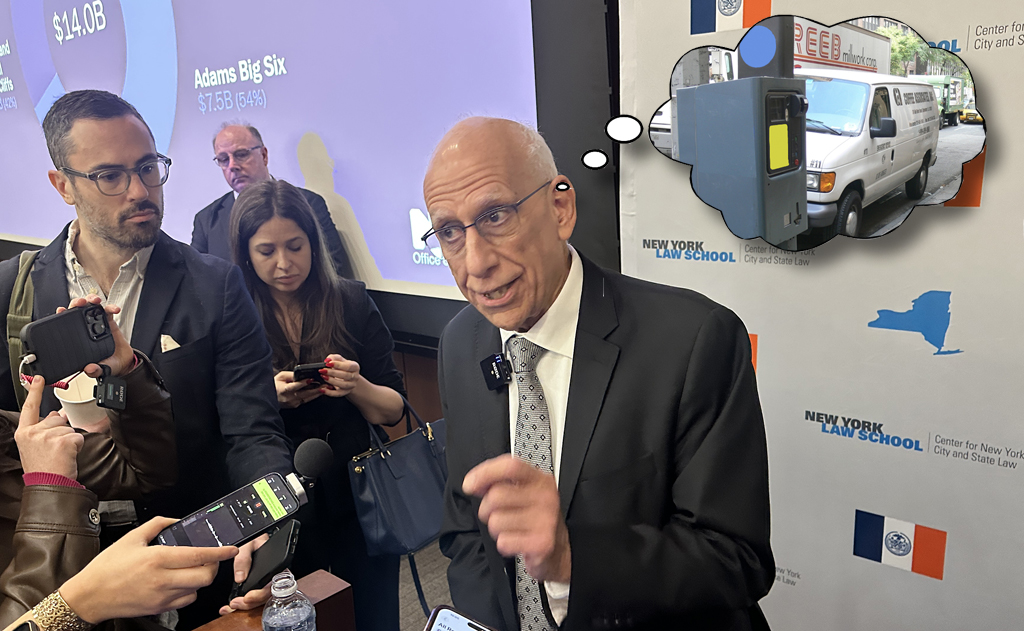Delivering his climate-change message to Congress yesterday, Transportation Secretary Ray LaHood warned that fuel-efficiency advances secured by the Obama administration would not be enough to reduce emissions from transportation -- not without encouraging Americans to drive less.
 Transportation Secretary LaHood said today he'll weigh in later on climate-change money for transit. Photo: HillBuzz
Transportation Secretary LaHood said today he'll weigh in later on climate-change money for transit. Photo: HillBuzzBut when it comes to the Hill's leading proposal to fund transit and other green transportation through the climate bill, LaHood is staying out of the debate for now.
Asked by Streetsblog Capitol Hill today about the so-called "CLEAN TEA" plan, which would set aside 10 percent of the revenue from any carbon cap-and-trade system for sustainable modes of transport, LaHood said the administration would wait until the House and Senate began merging their climate bills before expressing a view.
"We're going to let the Senate have their debate," LaHood said. "I believe you will see the administration weigh in during the conference report [stage] rather than me trying to tell the Senate what they should be doing."
In a sense, this approach is consistent with the "let Congress work its will" strategy that's been regularly employed by a White House stocked with congressional veterans. But a strong show of support for "CLEAN TEA" by LaHood, who often talks about his desire to expand transport options and transit-oriented development, could make the difference as the Senate works its way towards a first draft of climate legislation in September.
Indeed, the House-passed climate bill did not include "CLEAN TEA" and ultimately devoted just 1 percent of its cap-and-trade revenue to green transportation.
The climate-money-for-transit plan is sponsored in the House by Rep. Earl Blumenauer (D-OR) and in the Senate by Tom Carper (D-DE), who yesterday urged his colleagues to add it to their version of cap-and-trade legislation:
When Americans drive less, our transportation dollars dry up. So states and seeking to cut oil use, to lower greenhouse gas emissions and to reduce their constituetns' gas costs end up getting less federal transportation funds. This is punishing them for doing good.
Instead, we ought to reward state and local governments by sending federal dollars based on how much they reduce dangerous emissions.
Whether Carper can sway Environment and Public Works Committee Chairman Barbara Boxer (D-CA), who gave more to transit in her 2008 climate bill than this year's House measure does, remains to be seen.





